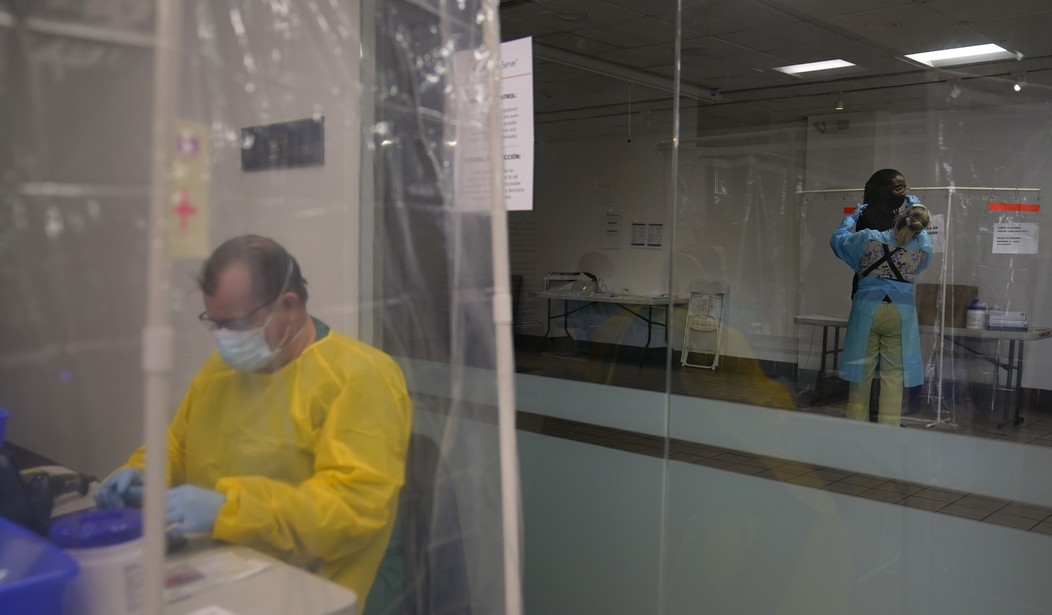When this headline popped up last night it probably set off some alarm bells for skeptics of the vaccine rollout. In Hawaii, a resident of Oahu tested positive for the delta variant of COVID, first discovered in India, after a trip to the mainland in May. They reportedly had received both doses of the Pfizer vaccine. But before we start hitting the panic button, we should note that this development was not really all that alarming and was actually predicted by health officials before the vaccines were even granted emergency authorization by the FDA. Also, this shouldn’t be seen as an indicator that Hawaii is on the verge of another resurgence in cases. (ABC News)
Hawaii says a vaccinated Oahu resident who traveled to Nevada last month has tested positive for the delta variant of COVID-19.
The delta variant was first detected in India and is a more transmissible version of the disease. The variant currently makes up 6% of all cases in the U.S.
Hawaii Health Director Dr. Libby Char says this is a “very rare breakthrough” case in which a COVID-19 vaccine didn’t prevent infection.
Hawaii’s Health Director went on to point out that this “breakthrough” infection was a good reminder to keep getting as many people vaccinated as possible. The fact is that the Pfizer vaccine has demonstrated a 96% efficacy rate against the delta variant, which is admittedly a more transmissible version of the virus. But that means that for every 100 people who receive that vaccine and go on to be exposed to the virus, on average, four of them will still contract the disease.
The patient in question likely doesn’t have all that much to worry about. In addition to stopping 96% of vaccinated patients from contracting the disease at all, the Pfizer dose has been virtually 100% effective in minimizing the effects of COVID, with patients displaying only mild symptoms. That’s still a far better outcome than winding up in an ICU bed hooked up to a respirator.
With the positive news out of the way, we should still keep an eye on that Indian variant of COVID. We learned just yesterday that Boris Johnson is postponing “Freedom Day” in Great Britain (when all the pandemic restrictions will be lifted) for another month because of another resurgence in the delta variant there.
That fact leads to the obvious question of why America’s numbers seem to be continuing to glide downward while the Brits are experiencing another spike. The delta variant is loose in both countries, right? Well… yes, but not all countries are handling their response the same way. The Brits are still on track to at least offer vaccinations to everyone by the end of July, but they got off to a considerably later start than we did in America, and vaccine hesitancy is as much of a problem there as it is in the United States, if not even more so.
On top of that, we should remember that not all vaccines are created equal. While the Pfizer and Moderna vaccines are approved in Great Britain (along with the new Novavax dose as of last week), they aren’t all widely available. A significant majority of Brits have been getting the AstraZeneca vaccine. While that vaccine is still considered effective, early clinical trials showed that it only had a 62% rate of efficacy as compared to the more than 90% rates seen with the doses most commonly being given in America. That means that if the delta variant is still blowing around in their country, not only will it be popping up in a lot of unvaccinated people, but also in roughly four out of ten that received the AstraZeneca doses.
As bad as things might sound in England at the moment, it’s still nowhere near as dismal as what they experienced last winter at the height of the plague and before any vaccines were widely available to the public. The finish line is in sight now. We just need to get on with our lives and wait for everyone who wants to be vaccinated to do so. After that, the rest of the population will probably come down with the disease sooner or later, and very nearly all of them will survive it and come out on the other side with their own immunity.








Join the conversation as a VIP Member